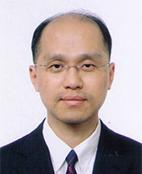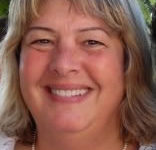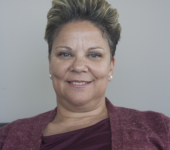July 1-5, 2024
Brussels, Belgium
EdMedia Special Interest Groups (SIGs)
Call for SIG Papers
Submit here: conf.aace.org/edmedia/2023/submission/
At EdMedia, Special interest groups (SIG) focus on a shared interest or topic of conference participants. The idea is to advance a specific area of knowledge through discussion and collaboration while at EdMedia but also between our annual conferences.
You are invited to submit a research publication clearly explaining the addressed questions for each SIG. SIGs are scheduled to be held at EdMedia as an outstanding track. All accepted submissions will be presented with a discussion to follow and extra time for in depth-discussion about the topic and future development of the SIG. All selected publications will be published in a special issue of the Journal of Interactive Learning Research (JILR).
If you and your colleagues would like to establish a SIG for a shared interest, please contact us for submission instructions.
Emerging Technologies for Learning and Teaching SIG
Introduction
Stephen Downes described the use of Web 2.0 technologies for teaching and learning as “e-Learning 2.0”. At the latest since then a lot of different approaches have been tested in real-life scenarios. Accepting that the user has to be at the center of all efforts a new approach to the student’s participation in learning has developed around the incorporation of the Internet into education. Collaboration and cooperation in real-time are nowadays possible and help to reach a new level in online and distance education.
In addition to this kind of social revolution based on different applications there are also remarkable technical improvements. Without any doubt the most impressive development of the last years is the increasing use of mobile devices. Learning and teaching can take place with completely different devices and in diverse environments when compared to some years ago. Does this mean that the time of the chalkboard, traditional face-to-face teaching, and the “teach-reply-test” settings have come to an end? WIFI and new mobile devices, especially multi-touch devices, have brought technology to where learning and teaching takes place – anywhere to anytime and therefore also in the lecturing room or halls.
There are many vital research questions, which need to be answered concerning how education of tomorrow looks like. But in any case the learner as well as the teacher of the future is totally digitalized. Media data as well as computers are in daily use. New interaction and usage paradigms, for instance, on multi-touch devices have an impact on the way end users interact with ubiquitous devices. A wealth of research opportunities exists within the field of new user interfaces and pervasive or ubiquitous computing. As this research and advancements are incorporated into education, a new form of education that could be named u-Learning (ubiquitous) – learning where ever you are and with your personal device – will emerge.
Aim of the Special Interest Group (SIG)
In areas that are defined by buzzwords such as new userinterfaces, ubiquitous computing, surface computing, multi-touch technologies, wearable devices, etc., this SIG likes to research and discuss the scientific base of future technologies for learning and teaching. We especially invite innovators, technology focused and visionary people of all educational sectors to present and discuss their results at this ED-Media conference. “Learning supported by innovative emerging technologies” best describes our goal.
The SIG defines their main interest in how technology enhanced learning can be supported by innovative technologies. The chair encourages researchers to submit contributions with a strong focus on technology. Bearing in mind that new devices like Apple’s iPhone or iPad as well as Android supported Smartphones and Tablets are pervading our daily life, and e-Books are more and more replacing traditional devices we like to ask for ideas how this will change education in the future.
Which future technologies will influence learning and teaching of tomorrow? Will the learners of tomorrow take advantage of the Internet of things and how? What happens to learning and teaching if huge parts of our human knowledge are in our pockets or even on our head? If every learner has wearable devices which kind of learning and teaching scenarios are imaginable? Can surface computers replace chalkboards?
There are many questions concerning the topic of technology enhanced learning, because technologies are dramatically changing with enormous speed. A great amount of research is necessary to integrate new possibilities into the daily learning and teaching process. Didactical approaches must be tested in real life settings to enhance the quality of learning environments. E-Learning deals with the possibilities of media technologies for teaching and learning, especially the use of the Worldwide Web, which has, lead to new perspectives and insights.
Our crucial question is: “Imagine you have the knowledge of mankind always with you on any device, world’s information is digitalized and collaboration in real-time is a daily routine – how must education of tomorrow be changed and which technologies are the appropriate ones?”
Objective of the SIG
The SIG would like to seek relevant and the latest empirical research findings in the area of technology for the research field of technology enhanced education. It will be held for professionals and researchers who want to improve their understanding of technological changes in learning and teaching within media in the 21st century.
Because the focus of the SIG and their members is strongly on the technology part, the conference program will be scanned by the SIG chair for research work focused on technology for education.
Procedure of the SIG
- Due May 22, 2023: Submit here: conf.aace.org/edmedia/2023/submission/ – Scanning of research work within the conference program which might be from interest for SIG participants.
- July 12, 2023: SIG meeting at the conference where SIG chair will introduce to those works and provide a possible conference guide to those presentations. Discussion about the chosen research work
- July 14 2023: SIG participants will participate the suggested presentations and vote for them online from the perspective of an innovative and emerging technologies.
Inquiries can be forwarded by mail to:
Adj. Prof. PhD. Martin Ebner e-Mail: [email protected] address: Münzgrabenstraße 35a, 8010 Graz, Austria phone: +43 316 873 8540
Short CV of the SIG-chair
Adj. Prof. PhD Martin Ebner (Graz University of Technology, AT): Martin Martin Ebner is currently head of the Department Educational Technology at Graz University of Technology and therefore responsible for all university wide e-learning activities. He holds an Adjunct Prof. on media informatics (research area: educational technology) and works also at the Institute for Interactive Systems and Data Science as senior researcher. His research focuses strongly on seamless learning, learning analytics, open educational resources, maker education and computer science for children. Martin has given a number of lectures in this area as well as workshops and keynotes at international conferences. For publications as well as further research activities, please visit his website: http://martinebner.at
Learning Design SIG
Of current interest to SIG members are the following topics:
- Ways to develop personalized learning experiences
- New approaches to learning and/or distributed community
- Foster student engagement with an engaged instructor
- Design of the learning environment (or authentic learning)
- Assessment as a part of learning
- Sustainable pedagogy by not over-taxing instruction
SIG Chairs:
Emerging Scholars SIG
AACE is proud to offer a special stream of talks, clinics, discussions and social events specifically tailored for emerging scholars and graduate students, at the EdMedia + Innovate Learning conferences. Each day will provide the opportunity for discussions and informal conversations, and social opportunities at the end of the day.
You can attend as many of these sessions as you wish, and move freely between these sessions and the full conference.
This stream of talks, clinics, discussions and social events is specially designed for PhD and Masters students, and new scholars in the profession.
The Emerging Scholars Stream provides a platform to discuss, debate, interact, collaborate and network amongst other emerging scholars as well as with current practicing researchers seeking to do the same. It is open to all attendees in the conference and it seeks to encourage and further the relationships between new and existing researchers in the field of educational technology.
The stream will also appeal to supervisors, advisors, early career researchers and others interested in the conduct of research in educational technology fields. This stream has several activities designed to give you a rich and meaningful experience in the conference.
Chairs:





